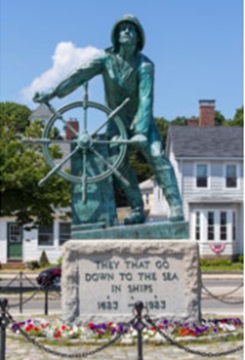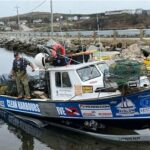Daily Archives: December 2, 2023
Coast Guard searching Gulf for fisherman reported overboard from commercial vessel
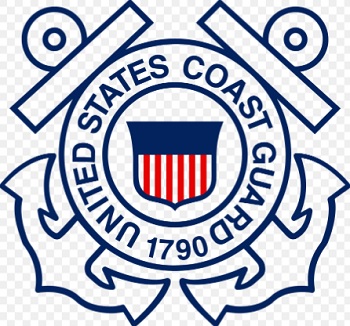 The US Coast Guard said it is searching a portion of the Gulf for a 35-year-old fisherman who reportedly fell overboard from a commercial fishing vessel early Saturday (Dec. 2), about 138 miles southwest of Port Fourchon. The man overboard report was radioed in around 2 a.m. from a vessel relaying the message from the commercial fishing vessel Miss Winnie, the USCG said in a statement. more, >>click to read<< We will update, as we get information. 14:00
The US Coast Guard said it is searching a portion of the Gulf for a 35-year-old fisherman who reportedly fell overboard from a commercial fishing vessel early Saturday (Dec. 2), about 138 miles southwest of Port Fourchon. The man overboard report was radioed in around 2 a.m. from a vessel relaying the message from the commercial fishing vessel Miss Winnie, the USCG said in a statement. more, >>click to read<< We will update, as we get information. 14:00
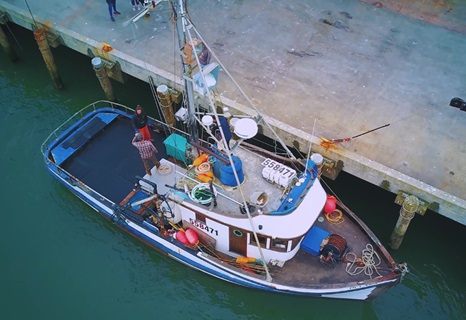
Reopening Areas for Groundfish Fishing After 20 Years
NOAA Fisheries has published regulation changes that will open fishing areas that have been closed for over 20 years. These areas were originally closed in the early 2000s to protect several species of overfished rockfish. With the rebuilt status of almost all these groundfish species, these closures can slowly be opened and allow fishermen greater access to catch healthy fish stocks. The regulations will also close some small areas to protect groundfish habitat, yelloweye rockfish (a species that is still rebuilding), and sensitive areas with abundant coral. These regulation changes are effective on January 1, 2024. Groundfish on the West Coast encompass over 90 species sharing one important trait: at some point in their life, they live on or near the ocean floor. Groundfish are a crucial part of West Coast underwater environments. They act as both predator and prey to different species and help maintain balance in underwater food chains. photos, charts, info, >>click to read<< 11:10
The Dead Ocean Effect: NAS study raises concern over offshore wind harming endangered whales
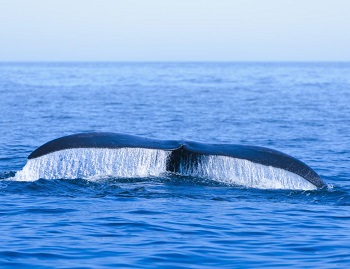 The National Academy of Sciences (NAS) released a lengthy report on what is known as the “dead ocean” threat with a focus on the Nantucket region, specifically what are called the Nantucket shoals. This is a major feeding ground of the desperately endangered North Atlantic Right Whale. It is really a good case study for all major offshore wind installations. The report uncovers something strange but true. The physics is technical, but the basic idea is simple. Wind turbines take a lot of the energy out of the air, creating a lower energy wake behind the wind turbine facility. Lower energy wind causes lower energy waves so there is much less mixing in the ocean surface layer. This depletes the oxygen level in the water, which can reduce the amount of living food sources that whales eat, which can harm the whales on a population level. This is why it is called the dead ocean effect. more, >>click to read<< 09:48
The National Academy of Sciences (NAS) released a lengthy report on what is known as the “dead ocean” threat with a focus on the Nantucket region, specifically what are called the Nantucket shoals. This is a major feeding ground of the desperately endangered North Atlantic Right Whale. It is really a good case study for all major offshore wind installations. The report uncovers something strange but true. The physics is technical, but the basic idea is simple. Wind turbines take a lot of the energy out of the air, creating a lower energy wake behind the wind turbine facility. Lower energy wind causes lower energy waves so there is much less mixing in the ocean surface layer. This depletes the oxygen level in the water, which can reduce the amount of living food sources that whales eat, which can harm the whales on a population level. This is why it is called the dead ocean effect. more, >>click to read<< 09:48
Marine Science Vessel Celtic Voyager Sets Sail to Canada
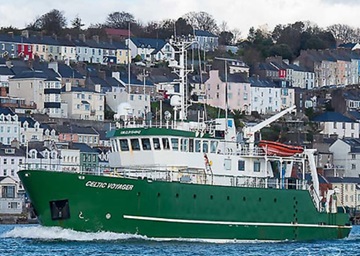 The Marine Institute’s Celtic Voyager, Ireland’s first multi-purpose research vessel, has been sold to Qikiqtaaluk Corporation of Nunavut, Canada. The vessel has played a significant role in advancing marine science and monitoring for the Irish government during its 25-year service life and has completed more than 600 surveys, enabled more than 6,500 science days, and sailed more than 550,000 miles while in service with the Marine Institute. The vessel will continue to be used for fisheries research and seabed mapping in Northern territories and Nunavut in Canada. Qikiqtaaluk Corporation is the Inuit birthright development corporation for the Qikiqtani Region and seeks to strengthen the social and economic well-being of Nunavut and the 15,000+ Inuit it represents. more, >>click to read<< 08:43
The Marine Institute’s Celtic Voyager, Ireland’s first multi-purpose research vessel, has been sold to Qikiqtaaluk Corporation of Nunavut, Canada. The vessel has played a significant role in advancing marine science and monitoring for the Irish government during its 25-year service life and has completed more than 600 surveys, enabled more than 6,500 science days, and sailed more than 550,000 miles while in service with the Marine Institute. The vessel will continue to be used for fisheries research and seabed mapping in Northern territories and Nunavut in Canada. Qikiqtaaluk Corporation is the Inuit birthright development corporation for the Qikiqtani Region and seeks to strengthen the social and economic well-being of Nunavut and the 15,000+ Inuit it represents. more, >>click to read<< 08:43
Canada’s biggest lobster fishery on notice after Right Whale entanglement in Nova Scotia gear
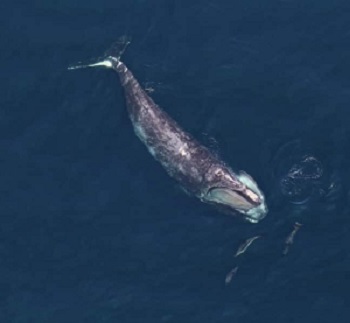 The entanglement of a North Atlantic right whale in Canadian lobster gear earlier this year will increase scrutiny this season on the lucrative southwestern Nova Scotia lobster fishery. In order to be certified as sustainable, the fishery must now prove its actions will not hinder the recovery of the critically endangered species. “This means the fishery has to demonstrate in collaboration with [the Department of Fisheries and Oceans that it’s going to strengthen its strategy to mitigate impacts on right whales,” says Kurtis Hayne, program director for the Marine Stewardship Council (MSC) in Canada. To satisfy the conditions, the Lobster Council of Canada, on behalf of industry and the Department of Fisheries and Oceans (DFO), have developed an action plan to increase overflights in lobster fishing area 33 and increase data collection, says Lobster Council executive director Geoff Irvine. more, >>click to read<< 06:39
The entanglement of a North Atlantic right whale in Canadian lobster gear earlier this year will increase scrutiny this season on the lucrative southwestern Nova Scotia lobster fishery. In order to be certified as sustainable, the fishery must now prove its actions will not hinder the recovery of the critically endangered species. “This means the fishery has to demonstrate in collaboration with [the Department of Fisheries and Oceans that it’s going to strengthen its strategy to mitigate impacts on right whales,” says Kurtis Hayne, program director for the Marine Stewardship Council (MSC) in Canada. To satisfy the conditions, the Lobster Council of Canada, on behalf of industry and the Department of Fisheries and Oceans (DFO), have developed an action plan to increase overflights in lobster fishing area 33 and increase data collection, says Lobster Council executive director Geoff Irvine. more, >>click to read<< 06:39






